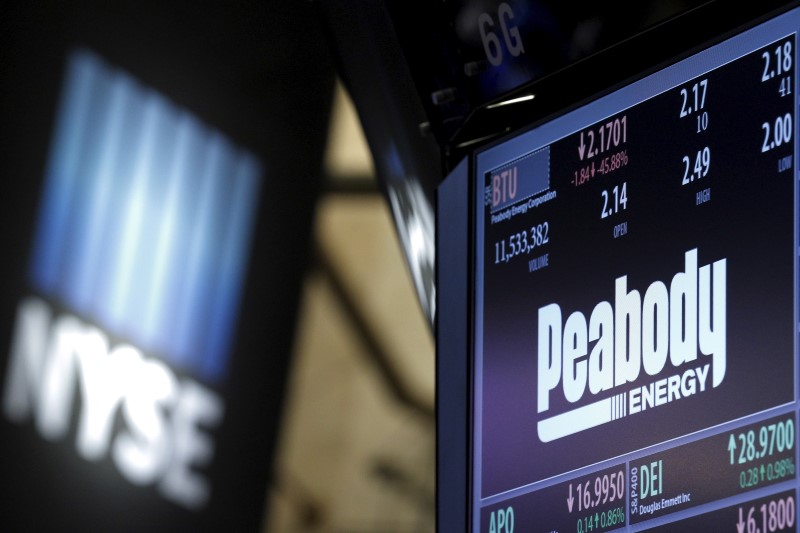By Tracy Rucinski
CHICAGO (Reuters) - Bankrupt coal producer Peabody Energy Corp (PK:BTUUQ) said in a court filing Friday it believes its long-term debt should be included in its current liabilities, a position that favors unsecured creditors to the tune of $1 billion.
A fight over how to treat long-term debt in calculating the mining company's assets has been looming since Peabody filed for chapter 11 protection in April with $10 billion of debt. The issue will have a major impact on how much each group will recover from the bankruptcy.
Peabody initiated a lawsuit against secured creditor Citibank and Wilmington Savings Fund Society, a trustee for other secured creditors, on Friday in U.S. Bankruptcy Court in St. Louis. The company asked the court to rule that long-term debt should be considered part of current liabilities.
The company said it had taken action because its agreement for debtor-in-possession financing ties its submission of a confirmable plan to emerge from Chapter 11 to obtaining a resolution of the long-term debt issue no later than Oct. 10.
Noting the adversary proceeding may entail lengthy discovery, Peabody also moved on Friday for the matter to be submitted to a nonbinding mediation.
"Time is of the essence," Peabody said in its court filing on Friday. The company, which owns some of the largest U.S. mines, wants to exit bankruptcy by April 2017.
At issue is Peabody's consolidated net tangible assets, known as CNTA, which are calculated by subtracting current liabilities from total assets.
A higher CNTA would increase the recovery of secured creditors like Citibank and Franklin Resources Inc (NYSE:BEN), while a lower one would put more in the pot for unsecured creditors including investment funds Aurelius Capital Management and Elliott Management Corporation.
Aurelius and Elliott, two of the most litigious investment funds on Wall Street, have spent years battling Argentina in U.S. courts over the country's 2001 default.
Franklin declined to comment on the proceeding initiated by Peabody while Aurelius and Elliott did not immediately return requests for comment.
Secured creditors believe they are entitled to $1.5 billion of claims, while unsecured creditors think those claims are worth only about $450 million, two lawyers involved in the process said.

The lawyers spoke on condition of anonymity because creditor groups' official replies to Peabody's lawsuit have not yet been filed with the court.